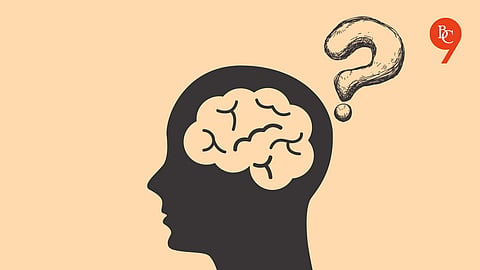

While memory loss is most often associated with the elderly, more and more young people today are having trouble remembering things. Are all these a sign of Alzheimer's? No, say doctors.
According to doctors, multiple factors are responsible for the youth tending to forget things. These include lack of sleep, too much screen time on devices, erratic dietary intake, and stressful lifestyles.
While these are not a sign of Alzheimer's now, "having such a way of life for a long time can lead to increased risk of forgetfulness in later life", Dr Prem Naganath Narsimhan, of Jaslok Hospital and Research Centre, told IANS.
Modifying the lifestyle, good sleep hygiene, balanced diet, and exercise can keep these lapses at bay, he added.
"Forgetfulness is not the one and only symptom of Alzheimer's disease, there are other signs and symptoms, and when they occur together, only then the diagnosis of Alzheimer's is made," Dr A.K. Sahani, Senior Consultant and Chief of Neurology Service, Indian Spinal Injuries Centre, told IANS.
Alzheimer's disease is a disorder of the brain that causes memory loss, confusion, and changes in personality, and limits an individual's capacity to act independently. It is the most common type of dementia and has different stages. While in the beginning, people with this disease have only a small amount of memory loss and confusion, in the final stage, Alzheimer's may render one unable to even talk to family members.
So, what are the signs and symptoms that tell Alzheimer's disease from the forgetfulness due to old age?
"Forgetfulness due to normal ageing will cause one to make a bad decision at times. On the other hand, Alzheimer's disease will cause poor judgement and decision-making quite often. For example, while you may miss a monthly payment as a forgetful person, you are likely to forget about bills for a longer duration in case of Alzheimer's disease," Sahani said.
As a forgetful person, you may not remember which day of the week it is, but recall later. For an Alzheimer's patient, it is difficult to keep track of the date or time of year. Alzheimer's patients also have difficulty in making conversation while a forgetful person may not be able to recall one or few words in the entire conversation, he said.
"Alzheimer's leads to immediate, recent and later remote memory loss, language dysfunction, disorientation to places, miscalculations and executive dysfunctions. Alzheimer's usually sets in after the sixth decade of life; but in a small number of cases, it can start as early as the third-fourth decade. History of pattern of memory loss, speed of progression and various brain imaging modalities like MRI brain/ functional imaging like PET scan etc help to differentiate the causes and analysis," Dr Amit Srivastava, Senior Consultant, Neurology, Dharamshila Narayana Superspeciality Hospital, Delhi, told IANS.
Further, "even emotional problems and mental health conditions, such as anxiety, stress, or depression, may also cause forgetfulness which can be mistaken for dementia", Sahani said.
Covid has also exacerbated the condition. Studies have shown that Covid-19 can lead to Alzheimer's-like cognitive impairment. This includes long Covid condition -- poor concentration, and memory difficulties.
Some medical conditions may also affect the functioning of the brain. These include, but not limited to: a few types of thyroids, kidney, or liver disorders, heavy consumption of alcohol, infections or tumours in brains or blood clots, head injury, side effects of any medication and deficiencies of vitamins and minerals like vitamin B12, the doctors said.
Eating a healthy balanced diet, exercise, regular sleep, social engagement, stress management -- all can help one prevent the condition.
